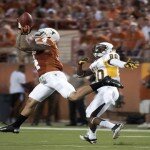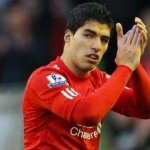
Kyle Terada-USA TODAY Sports
The NCAA is supposed to protect student-athletes and promote “athletic and academic excellence,” but these days, the governing body is doing more to undermine its own credibility than bolster the institutions over which it has jurisdiction.
Last week, the association fired its Director of Enforcement, Julie Roe Lach, after acknowledging “missteps” in its investigation into the Miami Hurricanes football team. UM President Donna Shalala responded swiftly to the official Notice of Allegations, criticizing the NCAA’s tactics and arguing that the university shouldn’t face additional punishments, on top of their self-imposed sanctions, following the shoddy investigation.
Miami’s fight is far from over, and the uglier it gets, the better it might be for college athletics.
If the NCAA is forced to explain its investigative and decision-making processes or, better still, forced to move to a more transparent, uniform model of enforcement, these situations could be handled more efficiently and effectively.
Instead of investigations taking, literally, years, with little communication between the investigators and the universities in question, they should be dealt with more efficiently so the violators are actually the ones punished, but that’s rarely the case today. Instead of operating under the premise that each case is unique and there are no precedents, there should be uniform punishments. Obviously each case is unique, but universities should be able to expect that certain crimes will carry certain sanctions.
As it currently stands, NCAA investigations are one big guessing game. There are no set timelines, no sanctions correlating to certain crimes, no logical reasoning for many outcomes.
As former USC head coach Pete Carroll said last week at the NFL Combine: “There are just so many questions. The inconsistencies and time frames are so varied it begs for concern. Why does [the NCAA investigative system] operate like this?”
Or put more simply: ”It’s just so out of whack.”
The USC Trojans were sanctioned after four years of NCAA detective work found that former USC star running back Reggie Bush - who had long since left the program – received improper benefits. USC served a two-year bowl ban and is in the second of three years of scholarship reductions. The burden of the sanctions fell entirely on a new coaching staff and players who were in middle school when Bush was stepping over the line from amateur to professional.
Neither Carroll, who left to coach the Seattle Seahawks before the sanctions were announced, or athletic director Mike Garrett, who was forced out in the wake of the investigation, were named in the investigation, nor were they still affiliated with the university by that time.
Former USC assistant Todd McNair, who was implicated in the case, was no longer on staff at the time the punishments were levied either. McNair brought a defamation suit against the NCAA, and in December 2012, the judge in that case called the NCAA’s actions “malicious” and “over the top.”
Two months later, in a different case, Miami’s Shalala referred to one of the enforcement staff’s arguments “ludicrous and counter to legal practice.”
It seems the only things fair and consistent about the NCAA’s system of justice are the glaring inconsistencies by which it operates.
Last week, The Oregonian’s John Canzano attempted to give an update on the NCAA’s investigation into the Oregon Ducks‘ recruiting practices (remember that?), but two years into the process, there’s still not much to say. Based on the timeline of USC’s investigation, one could surmise the Ducks won’t know anything for awhile, but then again, the NCAA doesn’t operate with any predictability.
Canzano wrote:
Something about all this doesn’t feel just, efficient or authoritative.
The Ducks deserved their licks for whatever they did wrong, but then, to get to move on. Oregon fans deserve to go free of the shadow. This has turned into a slow affliction of absurdity, and hardly anybody left in Eugene deserves real blame.
“A slow affliction of absurdity” is pretty much what the NCAA has become, and firing the enforcement director isn’t enough to fix it. If the NCAA really wants to protect student-athletes and the integrity of college athletics, it must find a way to do much, much better.

















